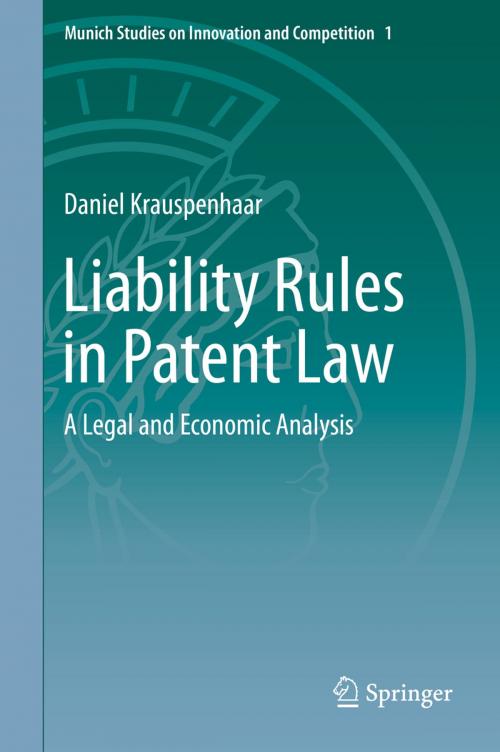Liability Rules in Patent Law
A Legal and Economic Analysis
Nonfiction, Reference & Language, Law, Media & the Law, Commercial| Author: | Daniel Krauspenhaar | ISBN: | 9783642409004 |
| Publisher: | Springer Berlin Heidelberg | Publication: | October 6, 2014 |
| Imprint: | Springer | Language: | English |
| Author: | Daniel Krauspenhaar |
| ISBN: | 9783642409004 |
| Publisher: | Springer Berlin Heidelberg |
| Publication: | October 6, 2014 |
| Imprint: | Springer |
| Language: | English |
The primary purpose of a patent law system should be to enhance economic efficiency, in particular by providing incentives for making inventions. The conventional wisdom is that patents should therefore be strictly exclusive rights. Moreover, in practice patent owners are almost never forced to give up their right to exclude others and receive only a certain amount of remuneration with, for instance, compulsory licensing. Other economically interesting patent-law objectives, however, include the transfer and dissemination of knowledge. Mechanisms exist by which the patent owner decides if he or she would prefer exclusive or non-exclusive rights, for instance the opportunity to declare the willingness to license and create patent pools. But it is questionable whether these mechanisms are sufficient and efficient enough in view of the existence of patent trolls and other problems. This work challenges the conventional wisdom to a certain extent and makes proposals for improvements.
The primary purpose of a patent law system should be to enhance economic efficiency, in particular by providing incentives for making inventions. The conventional wisdom is that patents should therefore be strictly exclusive rights. Moreover, in practice patent owners are almost never forced to give up their right to exclude others and receive only a certain amount of remuneration with, for instance, compulsory licensing. Other economically interesting patent-law objectives, however, include the transfer and dissemination of knowledge. Mechanisms exist by which the patent owner decides if he or she would prefer exclusive or non-exclusive rights, for instance the opportunity to declare the willingness to license and create patent pools. But it is questionable whether these mechanisms are sufficient and efficient enough in view of the existence of patent trolls and other problems. This work challenges the conventional wisdom to a certain extent and makes proposals for improvements.















